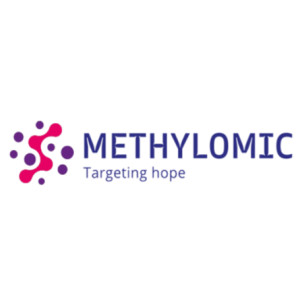 \
&
Contact us
\
&
Contact us
 \
&
Contact us
\
&
Contact us
Published on | 1 year ago
Programmes Digital, Industry & Space AI ContinentFIWARE is an open-source ecosystem that promotes sustainability, interoperability and portability of smart solutions. It defines open standards for IoT, data management, and Big Data, enabling businesses to develop scalable solutions without vendor lock-in. FIWARE focusses on communication standards that make everything work well together in complex environments - think: multi-vendor situations, international contexts, interactions with data spaces...
FIWARE defines a universal set of standards for context data management, which facilitates the development of smart solutions. FIWARE offers two flavours of the NGSI interfaces:
NGSI-v2 is easier to understand, and ideal for creating individual applications offering interoperable interfaces for web services or IoT devices. For situations requiring interoperability across apps and organisations (e.g. data spaces, system of systems approach, federations, ...), you'll need the NGSI-LD. The latter is also an ETSI-standard.
FIWARE is an open ecosystem that unites all possible actors relevant for sustainable data interoperability. More concretely, this means:
FIWARE maintains a curated catalogue of software platform components using the common API based. You can browse this catalogue here. Both information (news, events, ...) and opportunities (accelerator, funding calls, ...) are shared with the community. There are plenty of tutorials, trainings & webinars available to get people started.
FIWARE technology is basically domain-agnostic, and you'll find it used in several application domains of digital transformation, like Smart Cities, Smart AgriFood, Smart Industry, Smart Water, Smart Energy, .... Most applications are either Smart Solutions, Digital Twins or Data Spaces.
In cities, data from different domains (e.g. real time traffic data, event calendar, infrastructure works planning, ANPR camera's, car-park avbailability info, public transport timetables...) is typically contained in silos, which often implies vendor lock-in. Cities face fragmented systems, struggle with integrating them, making them expensive and difficult to scale, which hinders growth and innovation.
By opting for FIWARE-complient building blocks (or adding complient extensions to existing blocks), the walls between the silo's disappear. The open standards are the basis, but the community offers best practices, hands-on experience with seamless data integration.
The standards are open, and many core components are available as open source, but don't forget to take the cost of implementation into account. Don't have the resources available? Then use the technology providers and integrators in the ecosystem, they offer hardware, consultancy and/or premium solutions to get you running much faster.
Companies join to co-create innovations, accelerate digital transformation, and access business opportunities in global markets. Benefits for companies in the FIWARE ecosystem:
Types of companies involved in the FIWARE ecosystem:
Per definition, the domain where FIWARE offers solutions (data exchange, interoperability, data spaces, ...) is very complex. So be prepared that it will take you some time to grasp the capacities and capabilities of their standards, solutions and best practices.
If desk research fails to give you the overview you need, your best shot at getting started is probably by contacting a FIWARE evangelist
Is FIWARE an ecosystem for you? If you are active in a "smart" domain (e.g. Smart Cities, Smart Tourism, Smart Mobility, …) and data-interoperability is important to you, then you should give it a look! Especially if you are operating in a Data Space context.
Data Spaces are multi-faceted, that's why some actors have united in the Data Spaces Business Alliance. Besides FIWARE, it concerns BDVA (focussing more on the data space aspects), GAIA-X (focussing on governance and legal aspects) and IDSA, the International Data Spaces Association (focussing on standards).
A bit less related, but also interesting are MyData (focussing on personal data in a human-centric way) and ITEA (focussing on collaborative software innovation for smart domains).
We offer news and event updates, covering all domains and topics of Horizon Europe, Digital Europe & EDF (and occasionally, for ongoing projects, Horizon 2020).
Stay informed about what matters to you.
By signing up, you can opt in for e-mail notifications and get access to
a personalised dashboard that groups all news updates and event announcements in your domain(s).
Only for stakeholders located in Flanders

The METHYLOMIC project, ‘targeting hope for personalised medicine in immune-mediated inflammatory diseases’ obtained funding from Horizon Europe’s Health Cluster. The project aims to personalise treatment allocation and enhance the effectiveness of medications for chronic immune-mediated diseases such as Crohn’s disease, rheumatoid arthritis, and psoriasis. BIRD, the Belgian inflammatory bowel disease research and development group, is a partner in the project and is involved in the OmiCrohn trial, a prospective randomised clinical trial for individualised therapy in Crohn’s disease patients. With BIRD’s active role in this trial, the project is set to deliver predictive, biomarker-based therapies that bring renewed hope for Crohn’s disease patients across Europe.